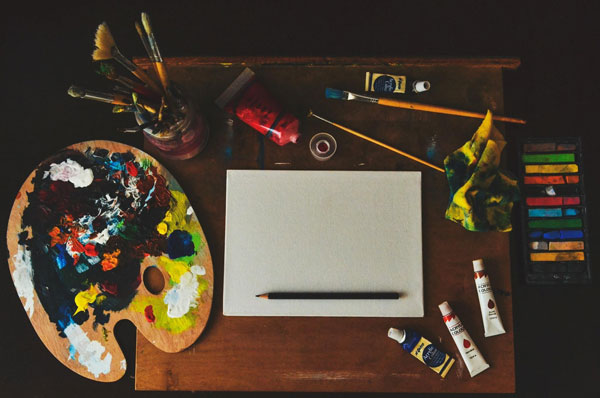How Art and Music Can Aid In Addiction Recovery
Photo credit by Pexels
Addiction recovery is stressful especially as you learn to safely manage your emotions. Your therapy and support choices aid you on your journey but you may feel like you need more help. Adding art and/or music therapy to your recovery program can relieve stress and help you better voice your emotions.
Why Creative Therapies Help
According to this article from Psychology Today, creativity can support your addiction recovery journey. It provides a pathway to work through your guilt and shame when you struggle for the words. It can also help you to deal with loss. One study showed that people who had lost a job and expressed their feelings with writing were able to find new jobs faster than those that didn’t.
The science doesn’t end there, though. In 2014, research also showed that using art and music therapy in substance abuse treatment programs helped patients confront their addictions and underlying problems, motivated patients to make beneficial changes and became an effective outlet for them to communicate feelings.
There are currently no specific large-scale studies that link creative therapies and addiction recovery, but science is beginning to show the benefits.
Therapy vs. Lessons: What’s The Difference?
It’s important to understand that these are therapies and not just lessons. They look similar because both involve active participation in the art. In fact, you may need to learn music or art to use it as you desire for therapy. However, according to One-Legged Piano, music therapy differentiates itself from lessons in two key ways:
1. Your therapist will accept your ability to play music at your current level without expecting you to exceed it.
2. Therapists use music to teach you skills, such as expression or discipline, so you can generalize them into your life outside of a musical setting.
The same is true of art therapy. While you have many choices, which should you pick – art or music therapy? Let’s dig a little more into each of these.
The Benefits of Art Therapy
As website Treehouse Rehab points out, “Whether it’s watercolor, acrylic, or oils, painting is a wonderful way for those suffering with addiction to cope. Not only is painting a quiet, soothing activity, it allows an artist to bring out whatever emotions they’re dealing with onto the paper or canvas and leave it there.” Because drugs and alcohol can dull a person’s emotions, painting can bring you back to yourself, little by little.
Art therapy is also a good choice when you feel that language is inadequate to convey your emotions and feelings. If you’re still not convinced, read Amy Oestreicher’s journey to addiction recovery in this post at Psych Central. Painting helped her work through emotional trauma, addiction and even aided her in personal development.
The Benefits of Music Therapy
In 2017, a review of existing studies revealed that “previously unmotivated patients had become more enlivened in their treatment when participating in music therapy.” That is a great reason to embrace these creative therapies as part of your program.
Music can also aid in your recovery in other ways. Playing an instrument has been shown to increase responsibility, relieve stress and create a sense of achievement. It can also help relieve depression, a common dual diagnosis for those in addiction recovery. Read more benefits at Effective Music Teaching.
Finally, studies show that music can also help “help groups of individuals in alcohol and drug rehab settings hear and understand
By Michelle Peterson
Read more of Michelle’s insightful and compelling blogs at Recovery Pride.
Recovery Pride seeks to change the face of recovery. We shine a light on the accomplishments and strengths of those who have overcome their addictions. The journey to sobriety is not one of shame, but of pride. Your stories and victories can not only help others that are facing similar paths, but can also help dispel myths and hurtful stereotypes.
This work is licensed under a Creative Commons Attribution 4.0 International License

